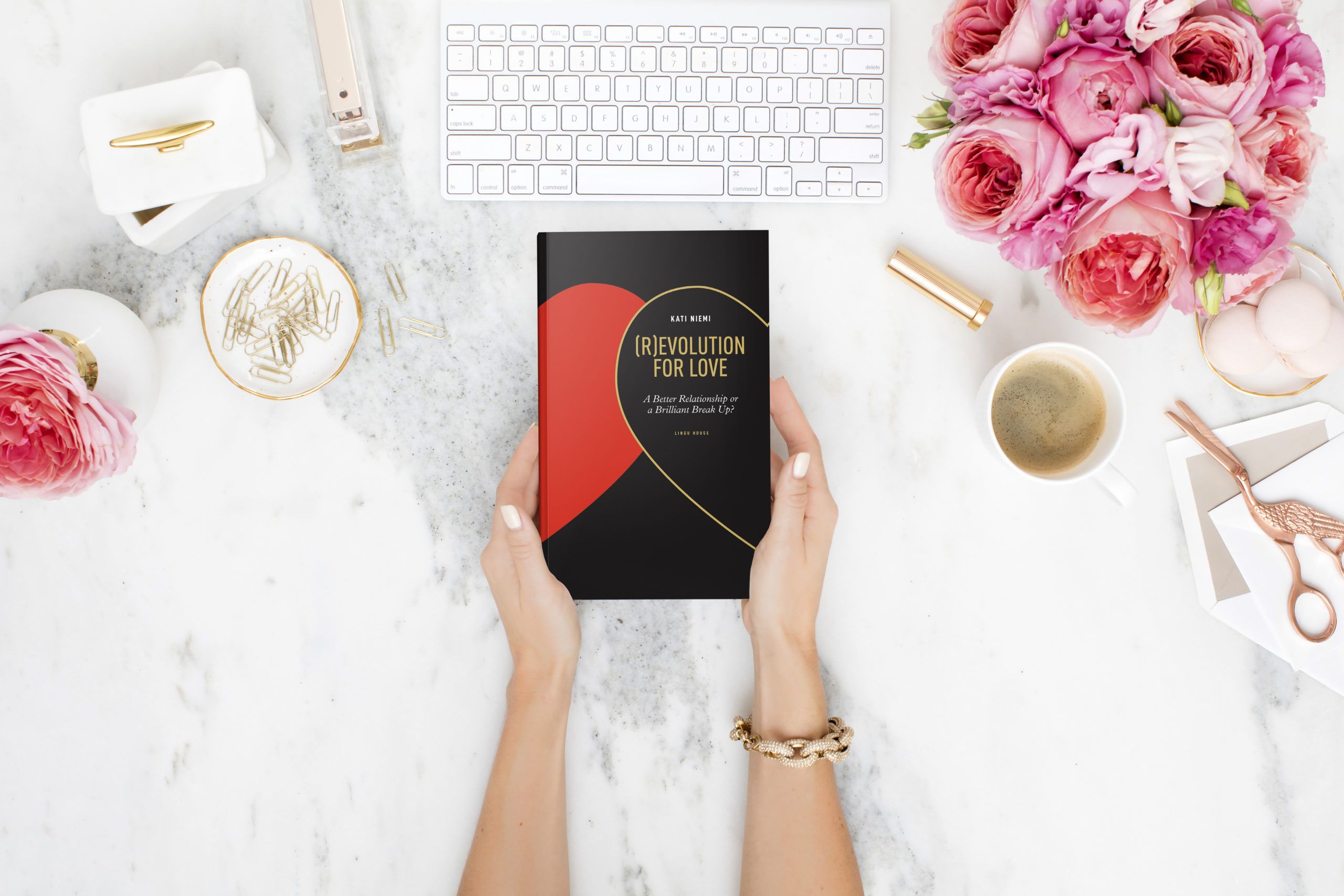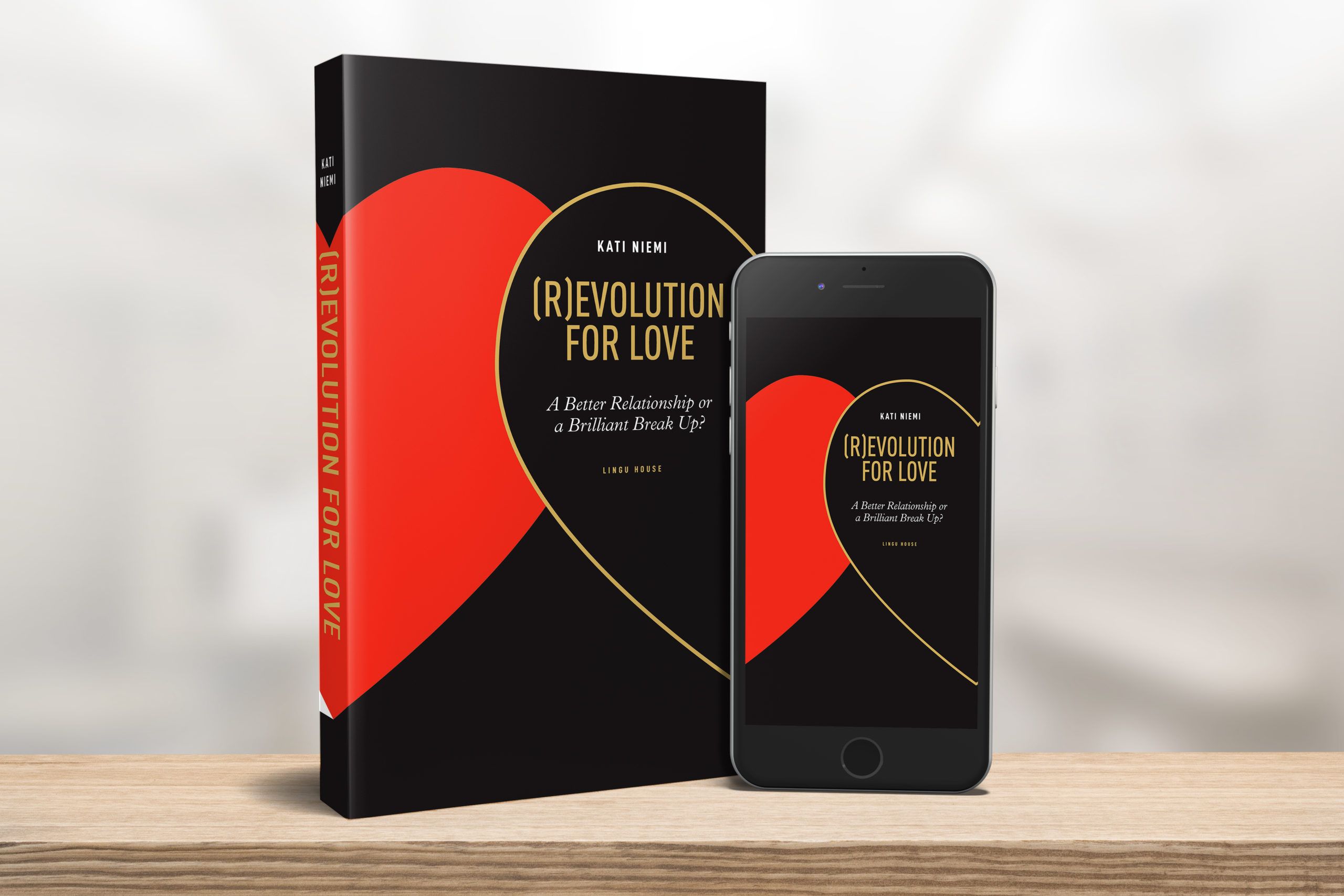The amount of stress we feel is not proportional to how busy we are or the number of adversities we have to deal with in life. Stress is caused by the imbalance when you are busier or there are more things going wrong than you can handle. When you are running out of steam even positive stress turns negative. And the impact of stress on your relationship is likely to be significant.
Stress symptoms are not only mental, such as anxiety. Your entire body reacts to stress, and the symptoms affect all your social relationships. However, the impact of stress is particularly big on your intimate relationship– after all, we spend major chunk of our time with our family.
Impact of Stress: Moods are contagious
One family member’s emotional state can easily spread to the entire household. The physical symptoms and social relationship problems that started with your own mental symptoms, such as anxiety, should never be ignored. Take stress seriously. Nobody has the right to expect their partner to manage their stress. Learn stress management skills so that you know how to take responsibility of your stress when the time comes.
This post discusses the far-reaching impact of stress and shows why diverse stress management skills are essential to us all. Read more about stress management skills in the following posts: Stress management

Online Coaching
Happy to help you! Welcome to book your online coaching session with the certified Coach, NLP Trainer, and Clinical Hypnotherapist Kati Niemi! Please select your
Perhaps your current relationship has drained you and you have nothing more to give. However, this precisely the time you should not postpone learning new stress management skills. You need them for yourself now and in your potential new relationship in the future.
The impact of stress on a relationship can completely destroy it, so take control of it before it takes control of you.
Stress is a relative and subjective concept. We all go through stressful situation in our life. However, what people find stressful can vary dramatically. Stress is an emotional experience born out of our interpretation of a stress signal, not out of the source that signal.
What matter is our ability to manage stress factors before they overwhelm us. Stress management is a skill that everyone should learn. The earlier the better, but it’s never too late. Multiple and diverse stress management skills become particularly important if your relationship is about crumble under the weight of stress.

How to improve your wellbeing through self-development?
Science has revealed: some adults are not mentally sufficiently developed. How to improve your wellbeing through self-development?
If you are experiencing increasing stress at work and at home, it will all reflect on your relationship. Sadly, your relationship is just an innocent victim in this. The root causes for the stress lie entirely somewhere else. For example, stress can be underlying factor why the couple suffers from childlessness or complete lack of sexual intimacy. The oldest “joke” in the world is the mysterious headache that you partner develops just when you happen to want to have sex…
How can you reduce the impact of stress before it’s too late?
In this post, I’ll be discussing this theme through the following questions:
- What’s the difference between positive and negative stress?
- What are the symptoms of stress and how do I recognise them?
- How does stress affect my physical, mental and social well-being?
- How can the complex stress symptoms affect my relationship?
- What causes stress in a relationship?
- What kind of relationships can cause stress in other areas of life?
Can stress be a positive thing?
Stress can be useful. A reasonable level of positive stress makes you try your best and drives you onwards and upwards in life. For example, when your dissatisfaction with a situation starts causing too much discomfort, this will create pressure that helps you make the necessary changes in life.

(R)evolution for Love – The Book
* I have selected every editorial product for your benefit. Sometimes you may get some discounts and I may receive a share from purchases made
However, the level of stress should always remain reasonable with respect to your resources. A bad relationship does not necessary drive you to leave, but it can paralyse you. The stress reaction is a “flight–fight–freeze” reaction.
Any change in life, no matter how positive, creates a physiological stress reaction in the body.
When under stress, the body excretes a stress hormone called cortisol, the basic physiological role is to protect us by giving us energy to tackle a stressful situation. In other words, the stress we feel has a positive purpose. Our bodies prepare us for a challenging situation so that we can quickly come out of it alive.
However, life sweets, too much of a good thing is bad. Working hard and passionately for your dream job may feel great because of the dopamine addiction it feeds. But even the happiest of workaholics can eventually collapse. Their physique simply can’t cope with the prolonged physical stress. Positive stress at work or at home can turn negative. This happens when the positive stress exceeds the capacity of your body to deal with the physical stress.
Your body is not a machine, no matter how strong you feel in your mind.
Impact of Stress: What is negative stress?
As already mentioned, stress can be a good thing, although the word has negative connotations. However, the body can’t tell the difference between good or bad stress. For the body, stress is stress. Positive stress usually passes quickly unless we feed it to get our dopamine fix. For example, extramarital affairs can boost our energy momentarily but, if prolonged, they turn into more and more into a source of stress instead of pleasure. To read more about this theme, read my post: Can secret affairs and one-night stands keep your relationship alive?

Are relationship problems simply just stress and lack of sleep?
Why does stress and lack of sleep cause problems in a relationship? Or do bad relationships cause stress and sleeplessness? How to get help?
When assessing whether the stress you feel is negative or positive, think is it a short-term or ongoing feature in your life. Remodelling your home from top to bottom or building your own house can be your lifelong dream, and while stressful, it still adds value and brings inspiration. If, however, the project drags on and you find your living in the middle of a building site for too long, the positive stress can turn negative.
Less is more
A boring job or too much work add stress. When working long days at a job you don’t enjoy, you may be dreaming of a sabbatical. Some even fantasise about being made redundant, which in reality is one of the biggest causes of stress! Financial security is extremely important, as is physical and mental security, both at home and at work.
Physical problems also cause mental stress. Excessive physical exercise, or “overtraining” leaves the body in a prolonged, heightened state of stress. Our bodies then need rest for the entire autonomic nervous system to destress. Continuous high level of noise has been found to cause physically quantifiable stress.

Physical Exercise for Stress Management and Hormonal Balance
We must learn how to manage stress so it won’t take a toll on our health. Physical exercise is the key to stress management and healthy life.
For example, a study found that people living in close proximity to London Heathrow airport showed higher than average incidence of heart problems. Yet the residents themselves felt they had got used to the noise. The mind gets used to physical stress but the body doesn’t. Similarly, we can grow used to cold or indifferent treatment from our spouse without realising that our bodies keep presenting stress symptoms.
Impact of stress and post-traumatic stress disorder
Sudden changes in life, such as being made redundant or a death in the family, cause significant stress. Getting married and having children are also score high on the stress scale, although both events are usually positive life events. When our lives change, we need resilience and flexibility to accept new things and situations.
Having to constantly stretch our capacity requires increasing mental resources, and sometimes we simply can’t keep up. If our resources are not sufficient to sustain us through a change in life, even the positive stress of a welcome change may turn into negative stress both mentally and physically. After all, the two are the halves of the same coin.
Sometimes we can be blindsided by a stress situation so fast that it causes trauma.
The stress impact of a traumatic event can lead to a post-traumatic stress disorder, PTSD. PTSD is a strong stress reaction following a traumatic event that repeats itself later in life when triggered.

What Is Cortisol: How High/Low Stress Hormone Levels Function
Cortisol is a stress hormone that affects the body, weight gain, anxiety… How to measure and reduce cortisol levels. (Meaning, Effects)
Trauma is a strong word and we tend to associate it with tragedies such as war or sexual abuse.
Impact of Stress: PTSD
PTSD can be caused by a wide range of factors. Initially, PTSD was a diagnosis used to describe the series of stress symptoms presented by combat veterans of the First and Second World War. Scientists noticed that, after returning from war, veterans could revert to the state of shock they experienced in combat. They could be triggered by sound like a motorbike speeding down the street or fireworks.
Since then, survivors of various natural and other disasters and victims of crime have been diagnosed with PTSD. Even the death of a loved one, such a spouse, child or parent can cause PTSD. Traditionally,
PTSD has been treated with hypnotherapy provided by qualified hypnotherapists. Clinical hypnotherapy is naturally also helpful in managing all types of stress symptoms, not just the most severe trauma-based cases. The subconscious and hypnotherapy can be wonderful tools in strengthening our personal resources in any situation that gives us stress. One perfect example is the stage in your relationship where you are experiencing increasing stress, which in turn makes it more difficult to make decisions about your relationship.
Why is positive stress good for us? How can a stress reaction be helpful?
There is a reason why our bodies respond to certain situations with stress reaction. Our lives depended on our ability to reach a state of heightened alertness in a second and to run for our lives should we cross paths with a hungry sabre tooth tiger. In the same way, the stress response has helped men keep on fighting in the war although mentally they were breaking down in the trenches.

Stress Management: 10 Tips How to Prevent & Reduce Symptoms
How to prevent, manage and reduce stress in a busy life? Causes and symptoms of stress, and good tips for stress management and wellbeing.
A stressful situation makes our heart beat faster to deliver energy throughout the body faster and with greater pressure. Our lungs pull in air in large quantities so that we can run faster. Our digestion stops, freeing the liver to focus on providing energy in the form glucose so that we have the strength to fight against our enemy.
The stress reaction in the sympathetic autonomic nervous system also has an impact on the excretion of urine, bowels and genital area and libido. It is not productive to give birth to children in the middle of a war, leading to a lowered libido. In a panic, we are known to wet and soil ourselves, because our body needs to be rid of the body’s waste products to speed up the escape.
The list of different stress reactions is long and not very pleasant, but all these functions are necessary physiological responses to a difficult situation.
Sabre-tooth tigers are no longer a threat. Some of us have been lucky enough not to have personal experience of war. And yet we still respond to difficulty with the same stress management mechanisms as our ancestors. Your partner’s careless words can cut like a knife. A long marriage can be like a thirty years’ war.
An unhealthy relationship or dissatisfying job can sustain a prolonged stress reaction for years on end. Our physique is not made for prolonged stress. Its purpose is to help us rapidly escape from a threatening situation. Prolonged stress is dangerous. Stress symptoms can be serious and the impact of prolonged stress is negative in all areas of life. All that pressure is detrimental to a relationship even if the relationship is not the root cause of that stress.
Impact of Stress: What are the symptoms of stress?
The typical physical symptoms of stress include the “stress tummy” or irritable bowel syndrome, nausea and diarrhoea, headache and various skin problems. Heart palpitations and arrhythmia and shortness of breath can also be signs of stress. People under stress perspire more than usual and they have urge to urinate. Stress makes us catch common colds and other illnesses more easily. We may suffer chronic neurological or somatic diseases. Sciatica and back pain are a common example.

THE FEAR OF BREAKING UP: “I’m too ashamed to leave.”
Some people stay in an unhappy relationship because of the shame and fear of breaking up. Break-up fear and and shame is common. Why?
There is a wide range of stress-related psychological symptoms. They include nervous tension, irritability, sleep disorders, aggression, restlessness, anxiety, depression, memory problems and difficulty making decisions. And it is by a combination of these two types of symptoms that stress affects our relationships.
Stress affects social relationships in many ways.
In other words, it affects our entire lives at work and at home. Stress leads to difficulties in the workplace. It interferes with our social relationship management skills and as impaired performance. These, again, can lead to conflicts with co-workers and managers. Stress easily disrupts our family and love life. It can lead us to fall out with friends or relatives, to completely isolate ourselves socially. At that point, going on a date or finding a partner is not an attractive option. However, that is exactly what we want deep down.
My book The (R)evolution for Love – A Better Relationship or a Brilliant Break Up? relates several of real-life experiences of the impact of stress in our lives.
For this book, I interviewed numerous men and women who live in or have left happy and unhappy relationships. Many of them recognised the power of stress: how it would erode the relationship or make it difficult to reach the right decision to break up. When we are stress, we are prone to procrastination and indecision.

FREE EBOOK ‘I love you but…’ – To Break Up or Not to Break Up?
Refocus your energy now to improve your love life! This FREE ebook ‘I love you but…’ will help you move towards a better relationship or
Google for the many stress tests available online to find out how stressed you actually are. However, knowing that you are stressed is not the solution. Your next step is to start learning stress management in all areas of life. Little by little.
Impact of stress on sex, dating and relationships
The impact of stress on physical well-being
One of the very common health problems of today is the “stress tummy”, or irritable bowel syndrome (IBS). The symptoms include pain, bloating, diarrhoea, constipation and discomfort in the stomach. While IBS is not dangerous, it can really reduce one’s quality of life. Besides feeling sick and diarrhoea, a stressed person often suffers from frequent urge to urinate. Although these symptoms might not directly affect your relationship, they do make the sufferer feel unwell. An unwell person is unlikely to bring much joy to their relationship. If you are constantly feeling a bit out of sorts and your daily routines are habitually disrupted by stomach problems, this will eventually reflect on your relationship.
The impact of stress on physical appearance
Many feel that their physical appearance prevents them from dating or finding a partner. Being unhappy with the way we look or suffering from low self-esteem do not exactly boost our self-confidence when it comes to having sex. Prolonged stress is known to cause weight gain and exacerbate skin problems.

Why is breathing important to our wellbeing?
Why is correct and slow breathing so beneficial and such a quick way to improve our wellbeing? (+BREATHING EXERCISE!)
The impact of stress on weight
The stress hormone cortisol is linked with weight gain. If you are used to feeling ok about your weight, suddenly appearing extra curves and rolls of fat can make you feel unattractive and unsexy. And even if weight is not an issue for you, stress is highly likely to lower your self-esteem. If your partner has to keep reassuring you that “you’ve still got it”, you will probably both feel a bit deflated. Mutual sexual attraction comes from both your feeling comfortable in your skin and neither begging for acceptance or constant boosting of self-confidence.
The impact of stress on skin
Skin can react to stress through increased secretion of sebum leading to spots as well as itchiness, flaky patches and blemishes. The red patches that appear around the neck and décolleté in a stressful situation are caused by the increase of cortisol and adrenalin in our system.
One unfortunate manifestation of stress is acne rosacea, which can cause great discomfort. It is a common skin problem in adults, and usually caused by stress. Rosacea causes the skin to turn bumpy, angry and inflamed, usually around the mouth and nose. Qualified beautician or dermatologists can help you with your skin problems. Their range of treatments include microneedling and carboxytherapy. In my personal experience, these treatments provide localised relief but are naturally not the lasting solution for managing stress.
The impact of stress on sexuality and fertility
The physical symptoms of stress you experience won’t necessarily cause problems in your relationship as such. However, stress can make it more difficult to enjoy sex and to conceive. It is the job of our body’s natural stress response to make sure that we don’t have children when the conditions are not safe. Stress and mental pressures cause erectile dysfunction and anorgasmia as well as infertility.

Improving wellbeing: How to feel better mentally and physically?
The power of the subconscious: Improving your wellbeing on all levels when in a relationship, during a break up and as happily single.
Infertility can in itself be a cause of severe stress, and only adds to the pressures a couple might be experiencing. Many couples have parted ways because of infertility and the stress on the relationship that it caused. But what if they could have avoided problem in the first place through holistic stress management?
The impact of stress on a couple’s mental well-being
The above physical stress symptoms alone can add to your stress and further deteriorate your mental balance. If your sex drive and your sex life as a result are suffering, a sexless relationship can become a stress factor in itself. It is stressful not to be able to have sex even if you want to. It is also stressful for the rejected partner. The vicious circle of accumulated stress is ready.
Impact of Stress: difficulty falling or staying asleep.
I wrote in more detail about this specific problem in: Stress and lack of sleep as causes for relationship problems – or is it the stressful relationship that is causing your sleep problems?
If what keeps you up at night is not passionate lovemaking but problems at work and other worries, your relationship may suffer in tandem with your deteriorating quality of sleep. Both of you will miss having relaxing sex before a good night’s sleep. This means that both suffer from one person’s stress and wake up tired and cranky the next morning. And tired and cranky parents tend to shout at their children, do that nobody is having a good start for their day.
A bad morning usually continues as a bad day at the office unless you have the tools to consciously rebalance your mood.

Conscious grieving can dramatically improve wellbeing
What is grieving based on humane, genuinely positive thinking like? How do you practice conscious grieving?
Then, after a day of hectic and demanding meetings and tasks you rush to the supermarket to cook for your ill-tempered partner. And your children are probably also acting up because they sense the bad mood between their parents. Your entire life seems to be off kilter. As a result, you may be tempted to call a time-out and look for relief from one-night stands or affairs, as I described in this post: Can secret affairs and one-night stands keep your relationship alive?
A relationship can be only as happy as the partners in it. Your stress is also your partner’s stress.
It affects your relationship even if the source of that stress is elsewhere: work, studies, financial problems. A relationship is not an island separate from other worldly concerns that affect us. Looking after your relationship requires that both partners also look after themselves. Both need to work on their ability to be a good partner to one another.
If you are having a tough time at work, a partner who can support your and share your worries is invaluable. But if they don’t have the ability to deal with their own stress, how could they help you?

Is the most important thing in a relationship love? Sex? Intimacy?
What is the most important thing in a relationship? What can you expect from your partner? Does there have to be sex in a relationship?
If you are having trouble handling your internal conflicts and pain, it might come out as argumentative behaviour towards your family. Remember, however, it is not fair to offload your unhappiness on your partner to carry. It is not their fault that you are overly stressed or unable to direct yourself and manage your external stress factors.
Everyone feels stressed. But not everyone makes their partner bear the brunt of their stress.
Manage stress at its source: take the responsibility of tackling the cause of stress as soon as possible. Otherwise you risk prolonged and accumulated stress load that trickles down into all areas of your life. Stress that originates in the workplace can destroy your relationship. Likewise, stress caused by your relationship situation can interfere with your performance and social relationship at work.
We all have the duty and the right to decide what our lives are like.
It is our responsibility to make sure we are generally content with our lives. It is our job to overcome the stress that we face in life. Partners are supposed to take turns supporting each other in various ways. If one of the partners always ends up being the strong one who picks up the pieces while the other adult keeps falling apart, the relationship is not one of two equal partners. It is a care relationship.

IMPROVING YOUR RELATIONSHIP: Tips for a better relationship
10 tips for improving your relationship – Here’s how to make an already good relationship permanently better
You are probably aware how tough it is to be a carer. Don’t become one if you can see that your partner is not even trying to seek help and manage their own situation. Caring for one’s partner in old age or at a time of illness is a loving and valuable thing to do. However, there are too many middle-aged couples in which one partner is propping up the other. As adults they should be perfectly capable of standing on their own two feet.
A relationship is not a contract that binds one partner to serve the other one to exhaustion, sacrificing their own lives.
In a balanced relationship, both partners support each other. Both teach each other things that they don’t know. And both increase each other’s well-being on all levels. A relationship is not a one-way street. It is not fair if one of the partners has to keep track and take care of everything while the other one just looks on and creates more mess.
A relationship between two adults should not be a care relationship similar to one between a parent and a child.
The impact of stress on life
Stress shows as multiple symptoms that reflect on all areas of life. Difficulty to make decisions is an example of a typical stress symptom that can be detrimental both at wort and at home. A stressed person may also try to control everything at work and end up resisting necessary and positive changes. A stressed out manager is afraid of making decisions in a situation where they don’t have all the fact to support the decision. Yet most managerial decisions are a risk. There are always unknowns in our constantly changing environment.

Can secret affairs and one-night stands keep a relationship alive?
The love and passion in a secret affair can be the most amazing thing to experience. What reason is good enough to have a secret affair?
The performance of a stressed out employee is likely to be lower than average, leaving co-workers taking more responsibility than they should. This can create conflicts between team members, which requires intervention by the manager. If the manager, due to their own stress, are unable to take the lead, the stress symptoms can paralyse an entire team. A company where neither the management nor the employees are able to regulate their stress levels are likely to underperform and not meet their targets.
In a similar way, an individual will not meet their potential during one lifetime if stress takes over their lives.
At home, a stressed out parent shouts at their kids if their toys and other stuff are not in their right place and they can’t control every aspect of their lives. If a child falls ill, it’s a complete disaster. Or that’s how your catastrophising mind wants you to perceive change. Housework can be a source of stress and cause for arguments between a couple, but housework can also serve as a welcome stress relief, as I explain in my other blog post.
There is not just one reason for stress
Although it is easy to blame your internal angst on a demanding job or troubled relationship, stress is seldom the result of a single factor. It is not just your idiotic boss or irritating spouse.
A stress caused by a single factor would be more straightforward to manage because your resources supported by other areas of life would sustain you through the crisis. Stress is usually a more wide-reaching behavioural phenomenon. A person prone to stress usually finds several aspects of their life stressful and show symptoms in all kinds of situations. It is usually a life-long and all-permeating habit. That habit can be broken, however, if you take the time to tackle to root cause for your stress.

CHEATING: At what stage of evolution is your relationship?
How common is cheating in relationships? Is cheating the cause or the consequence of relationship problems and can it be stopped by love?
The answers may not be easy to find and stress management may take practice.
Why are relationships stressful?
Your family and relationship should be the safe haven where you can recharge both mentally and physically. It should be a place where we can forget the stresses of the world out there. However, any problem in the family can also cause stress that leaves its mark physically, mentally and socially. Domestic violence does not only leave physical marks but also creates untold anxiety.
Mental neglect in a relationship also causes stress with its known impact on our physical well-being.
As I explained above, stress can lead to a distorted body image, which can have a negative impact on your sex life and relationship in general. If your partner is critical of their own or your physical appearance, it will only add to the stress and anxiety. Who would want to show affection to a person who claims to be on your side and yet criticises your looks and undermines your sexuality?
However, physical abuse or disparaging comments on the partner’s appearance or sexual abilities are not the only things that cause stress in an unhappy relationship. Any form of criticism that is not just “constructive feedback” is hurtful. What does constantly hearing that you are stupid, incapable or lazy as a wife and a mother do to you? Does being criticised for your lack of sex or emotional skills inspire you to build faith in yourself and your abilities?
A stressful relationship will become more difficult to leave the longer you stay in it.
Many adult who under no circumstances would tolerate physical abuse, may find themselves holding on to a relationship full of emotional coldness and neglect in all other forms. The longer you stay in such a relationship, the more firmly the added stress caused by that relationship will have you believe that there is nothing better out there. Stress narrows down your field of vision both literally and figuratively speaking, so seeing your options is more difficult. The dreams of your youth fizzle out, and soon they are out of sight. And losing sight your dreams is the saddest thing ever.

HOUSEWORK AND SEX: relationship problems or happiness?
Housework can be the biggest reason for couples to fight or even to break up. It could just as well be a source of wellbeing. Like sex.
As a couple, it would be good to have shared dreams but they can’t be pursued unless both partners are willing and able also to dream for themselves. If you can’t hold on to your personal dreams, how could you share them with your partner? If you think that your shared dreams happen just like that or you expect your partner to realise those dreams for you, think again. Otherwise you’ll be waiting for the rest of your life.
How does outside factors create stress in a relationship?
If you can’t manage general stress on your own or with the help of a qualified coach or therapist, the stress you feel will eventually seep into your relationship. If worse comes worst, it will invade your entire home. Using your relationship as the space where you vent your work stress or any other sadness arising from the void in your life is dangerous. You run the risk of placing too much pressure on your partner.
If you alleviate stress at home by playing computer games, browsing the social media or “relaxing” with a glass wine, it is small wonder if your relationship suffers. If your recourse is to nothing but complain and nag at your partner, be prepared for an even bigger stress: break up.
A relationship can be spoiled with factors completely external to the relationship.
A troubled relationship is the sum of all the skills the partners as a couple lack. Do you know what one of the greatest and at the same to most unnecessary causes for relationship problems is? It is the in ability of a person crushed by the modern way of life to manage and reduce stress.

How to improve your relationship in seconds?
If you think there are no quick and easy ways to improve your relationship, think again. Find out how to improve your relationship in seconds.
The biggest problem in a bad relationship is not that there is a problem but that the couple is not actively trying to solve it together. Sometimes what excess stress does to a relationship is that it paralyses us and makes us believe that there are no solutions. Remember that positive stress drives us to move forward and fight for things that matter to us. Could your relationship be such a positive stress.
The impact of stress on a relationship is enormous
As described above, the various problems that life throws at us affect our home life and add stress in our relationships. We are all responsible for our own stress management. Nobody else can feel your feeling for you or to carry the burden of your anxieties. The purpose of being in a relationship is to mutually support each other towards finding solutions. Our job is not to support a partner who is unwilling to seek solutions for their own problems. Typical problems are excessive stress and other causes of anxiety.
It is important to be aware how stress affects your physical and mental well-being and social relationships.
Now that you know this in theory, put your knowledge into practice and answer this question: How will I make sure in practice that I will become a better companion to my current or future partner?
It is crucial to realise that your stress is all yours. It is your internal emotion and your spouse can’t feel what you are feeling. Stress is your personal interpretation of the factors triggered your stress reaction. Since only 5% of our actions are based on conscious thinking and 95% on the subconscious and unconscious mind, it makes sense to learn to listen to the messages of your inner space.

Motivating You to mindshifting in many ways,
Your Coach Kati Niemi
Clinical Hypnotherapist, NLP Trainer, M.Sc.
[email protected]

“FIVE STARS!” Book reviews: (R)evolution for Love (Amazon Books)
“Five Stars!” Editorial reviews and reader reviews of (R)evolution for Love – A Better Relationship or a Brilliant Break Up? Amazon books

FEEDBACK TO LOVE! Reader reviews (Book+Blog)
RELATIONSHIP GUIDE: BOOK REVIEWS – We are blown over by the feedback the (R)evolution for Love relationship blog and guide have received. WOW!

FREE AUDIOBOOK: Audible, Google Play and other stores’ free trial
Audiobook lovers benefit from FREE trial periods of book stores. Enjoy (R)evolution for Love on Amazon Audible, Google Play & other stores

FREE EBOOK ‘I love you but…’ – To Break Up or Not to Break Up?
Refocus your energy now to improve your love life! This FREE ebook ‘I love you but…’ will help you move towards a better relationship or

How to improve your wellbeing through self-development?
Science has revealed: some adults are not mentally sufficiently developed. How to improve your wellbeing through self-development?

Why does our conscious mind question the power of the unconscious mind?
Is the power of the unconscious mind fake news and is trying to harness it to achieve our full potential a waste of time? What do we mean by the unconscious mind?

INFIDELITY and the collected excuses: The good reasons for cheating
CHEATING: What is a good reason to cheat? What do the cheated partner, “the other woman/man” or the cheater choose to believe in?

What is an open relationship? Does it lead to breaking up?
What is an open relationship? Who are non-monogamous open relationships for? Is your partner suggesting consensual non-monogamy?

Narcissism in a Relationship: “How to Know if My Partner Is a Narcissist?”
What are the signs and causes of narcissism? Can you make a relationship with a narcissist work? Can you heal a narcissistic partner?

Aromatherapy for Libido & Romance – The Best Essential Oils for Love
Sense of smell influences our sexual desire and performance. Aromatherapy tips and the best essential oils for romance, libido, sex and love.

When positive thinking becomes toxic
What is too positive thinking like? Where should we focus the power of our mind and our willpower?

TO BREAK UP OR NOT TO BREAK UP? Should I stay or should I go?
How do you know if you should leave or not. How to make the decision to break up or to improve your relationship? To break up or not?


























